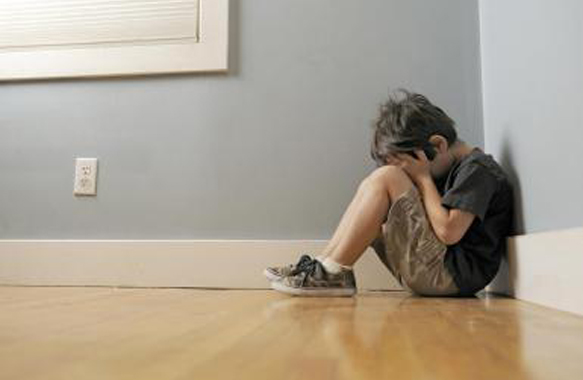“Time outs don’t work for parents who are unwilling to put themselves in an adult time out — which is what’s really needed”
In my opinion, we need a big do-over with the classic “time out.”
First, it’s understandable why some parents use time outs—they kind of work.
Here’s how. If I never do any “inner work” on myself as a parent, then I will have an incredibly narrow tool belt for parenting. I won’t even know it’s possible to do it differently. Time outs become a seemingly good tool because I can find temporary relief from my own discomfort under the guise of “teaching my kid a lesson about his/her inappropriate behavior.” In this sense, time outs work for the parents to avoid their own emotional upset and history that’s being triggered by their child.
Moreover, time outs are often an attempt at a boundary setting using shame. Shame begets more shame and fear in the child and teaches kids to fear their parents and fear punishment. Shame is yet another limited tool in the parental tool-belt. More on that here.
A time out is a parent’s way of saying “I’m not able to tolerate my experience right now (i.e. I’m not okay), so you, child, need to go away for a few minutes so that I can be okay again.” Parents who use and rely on time outs for their kids are unknowingly communicating to their children “I’m not willing or able to take space to work with my own triggers, so I’m punishing you for ‘making’ me feel this way.”
Which is why time outs don’t really work. If during the time out a parent does nothing to work with their own adult triggers in their own adult body, nothing will change. Kids don’t know how to work with their own triggers and a time out isn’t teaching them anything about how to work with their hurt, pain, anger, or upset.
Children can slowly begin to learn “it’s my fault for making my parents upset, there must be something wrong with me.” However, most children are smart enough to see through the hypocrisy here. “Wait, my parents are punishing me because they are upset about what I’m doing and they aren’t doing anything with their upset, except trying to change me. Hmmmm…..”
The do-over–The parental time out
What really needs to happen here is for ME, the parent, to take a time out.
Instead of making my kid wrong for upsetting me, I take a time out for me because that is what’s needed here. I am THE person triggered, so I need to model taking space to honor my triggers so that I can actually work with them. Slowly over time, this models self-love, self-respect, and self-knowledge and teaches my children that it’s not only okay to honor myself by setting a boundary, but it can actually resource me to stay in relationship during conflict and hard times.
Once I take my own “parent time out,” I can now address my child’s behavior from a calm and assertive place and set any appropriate limit that needs to be set.
Parents who take time outs, raise emotionally healthy children who gain facility over time on how to work with their emotional life, thus having more choices over how they behave. The hidden bonus here is that my child keeps giving me an opportunity to grow myself up and heal any old, wounded parts in myself.
Once we learn the parental time out, we also learn that, instead of giving our kids a time out, we can thank them.
Jayson Gaddis is a former psychotherapist. Currently he is a marriage and relationship coach. He is also a teacher, speaker, and a writer. Jayson is a soul guide. His own marriage and two cosmic children taught him the lessons that he now teaches; given the tools, conflict can transform our life. With greater awareness and a little help we can transform your relationships for good. Jayson Gaddis’ training and work with motivated people has helped to cement his belief that when we choose to change our patterns, we can grow the capacity to love. Jayson knows that he is on the planet to help people master the soul lesson burning in their heart, through the vehicle of intimacy and relationship..
This piece was reprinted by EmpathyEducates with permission or license. We thank the Author, Jayson Gaddis, for his kindness, and insightful vision.












Leave A Comment